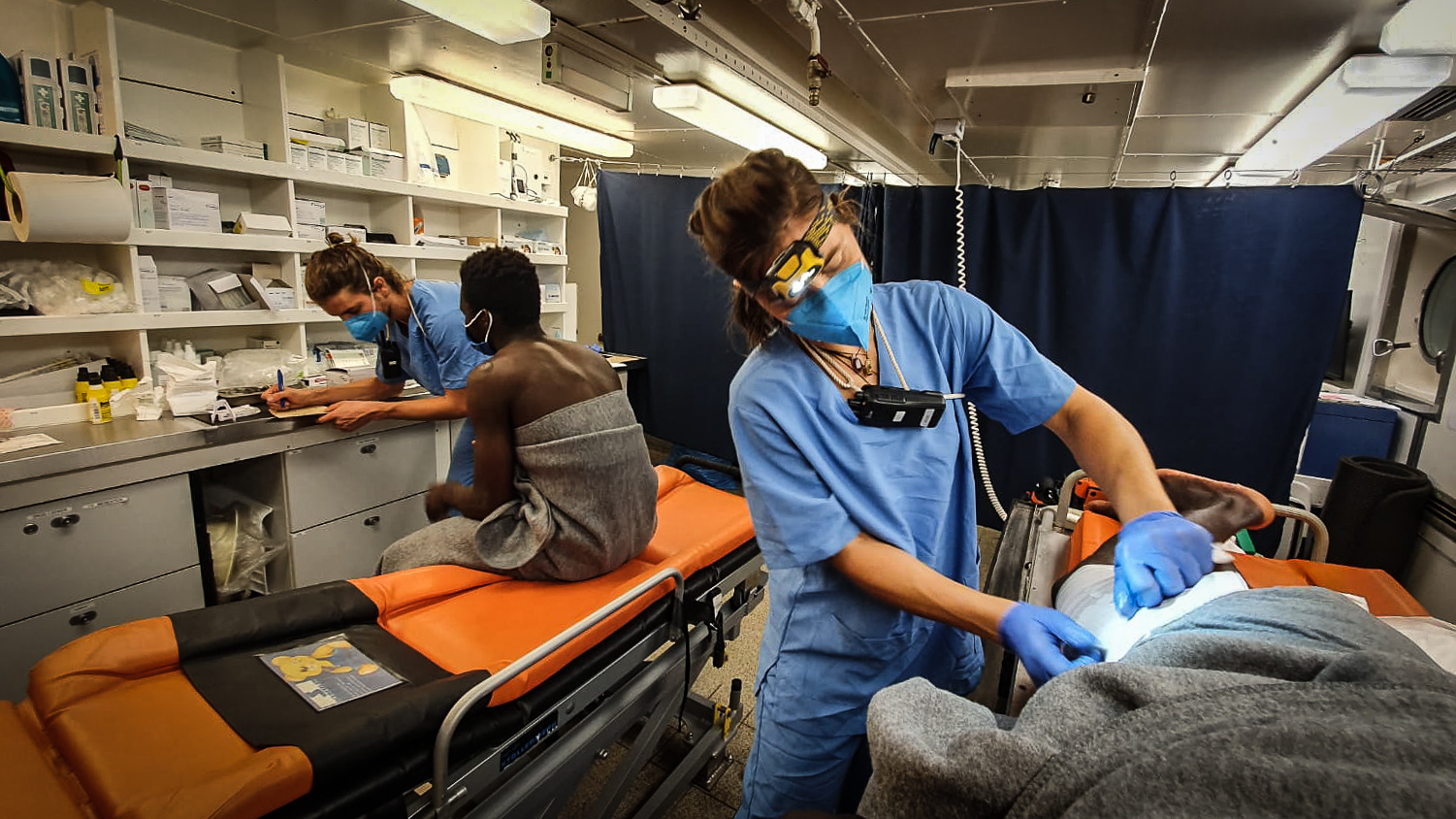The moral experiences project

Ethical challenges, moral experiences and moral distress
The analysis of moral experiences that may lead to moral distress in humanitarian work has been a focus of research at MSF’s Operational Centre in Geneva since 2018.
‘Moral distress’ is a recognized term for a set of negative emotions typically experienced by healthcare providers and humanitarian workers, in situations where they feel they cannot follow the ‘right’ course of action even if this action is theoretical and unachievable in practice.
These negative moral experiences can lead to feelings of powerlessness, frustration, self-doubt, helplessness, hurt and anger. Typically, moral challenges encountered in humanitarian practice lead to moral distress. There is evidence to suggest that – if unaddressed – it contributes to staff demoralization, desensitization and burnout and, ultimately, to lower standards of patient safety and quality of care.
Documenting moral experiences from MSF field workers
The UREPH has been collecting testimonies from colleagues recounting episodes of moral distress in a wide range of situations. The objective is to support and accompany MSF staff in the field and HQ in situations of difficult moral experiences to improve their wellbeing, and eventually achieve better quality patient care and operations.
Interviews carried out during the COVID-19 pandemic were considered as essential for gaining a better understanding of how the situation was affecting aid workers and contributing to the discussion on how to prevent and alleviate potential moral distress in this context.
Tough choices: moral challenges experienced by aid workers during the Covid-19 pandemic
Moral challenges experienced by aid workers during Covid-19
The COVID-19 outbreak generated concern within MSF, both in terms of continuation of routine programmes, but also in relation to the direct impact of COVID-19 in the communities we already supported, and the need for new interventions to respond to COVID-19 and its consequences. At the same time the organization was facing restrictions on movements of staff, goods and a global PPE shortage, and therefore was confronted with severe limitations for current and future interventions.
All these constraints had repercussions on MSF staff at different levels. Decision-making was ethically challenging, and field teams as well as headquarter staff were experiencing this on a daily basis.
Silent wounds: understanding the moral challenges associated with humanitarian work
To shine a light on the direct and indirect impacts the pandemic has had on our staff and to offer a space for them to share their stories, MSF created “Silent wounds”, a video project along with a research study of experiences that bring about moral distress.
From Eswatini to Ukraine, watch more videos of our aid workers sharing their pandemic experiences. You can also view the whole project here.